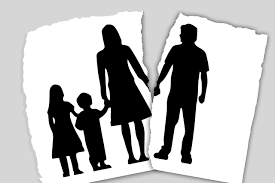Effects Of Separation From Primary Caregiver
Stress in children is a common problem.
During the developmental stage of separation anxiety in children, the child becomes anxious when kept separate from the primary caregiver (normally the mother).
Causes.
It appears that as babies grow, their feelings and responses to the globe around them take on a predictable pattern as they mature. Newborns are so new to the world before they reach the age of eight months that they have no concept of what is usual and safe and what may be threatening. It appears that as a result, new situations or people do not scare them.
When children are between the ages of 8 and 14 months, they are frequently afraid when they meet new people or go to new places. They actually recognize their parents as being familiar and secure in their own skin. It is natural for children to feel threatened and unsafe when separated from their parents.
Separation anxiety is a natural stage of a child’s development as he or she grows older. It contributed to the survival of our forefathers and assist kids to learn how to experience the world around them.
It usually comes to an end when the child reaches the age of around two years. Toddlers start to understand that their parents will be out of sight for the time being, but that they will return later. It is also common for them to conduct tests to determine their independence.

Children must do the following in order to overcome separation anxiety:
- Feel secure in their surroundings.
- They should put their trust in people apart from their parents.
- They have faith in the return of their parents.
Even after kids have passed through this stage, they may experience separation anxiety again during times of stress. When placed in unfamiliar situations, most children will experience some level of separation anxiety, which is most commonly experienced when separated from their parents.
It is natural for children to seek out their parents for comfort and safety when they are in stressful situations (such as hospitals). Because anxiety can exacerbate pain, remaining with a kid as much as possible can help to reduce the severity of the pain.
Read also staying in a loveless marriage for child
Symptoms
A child who suffers from severe separation anxiety may exhibit any of the following characteristics:
When a child is separated from their primary caregiver, they experience extreme distress.
- Nightmares
- Fear of being separated from one’s family causes some people to avoid going to school or any other place.
- Reluctance to fall asleep without the primary caregiver present.
- Physical complaints that recur on a regular basis.
- Angry at the prospect of losing or causing harm to the primary caregiver.
Exams and tests are conducted.
Because this condition is considered normal, there are no tests available for it.
If severe separation anxiety continues after the age of two, a visit with a healthcare provider may be necessary to determine whether the child has an anxiety disorder or another condition.
Treatment
Normal separation anxiety does not necessitate medical intervention.
Parents can assist their infant or toddler in adjusting to their absence by entrusting the child’s care to a trusted caregiver while they are away. This aids the child in learning to trust & bond with other adults, as well as understanding that their parents will eventually return to their home.
If at all possible, a parent should accompany their child during medical procedures. Whenever a parent is unable to accompany their child, trying to expose the child to the situation in advance may be beneficial, like visiting the doctor’s office prior to a test or procedure.
A child life specialist is available in some hospitals, who can help children of all ages understand medical procedures and conditions. In the event that your child is extremely anxious and requires extended medical care, speak with your provider about the availability of such services.
When it is not feasible for parents to be present with their children, such as during surgery, explain the situation to the children. Make sure the kid that a parent is waiting for him or her and where he or she should look.
Treatment options for older kids who have not outgrown separation anxiety include the following:
- Anti-anxiety medications are prescribed.
- Modifications to parenting techniques
- Individualized parenting and child counseling
Treatment options for severe cases can include the following:
- Education of the family
- Therapy within the family
- Therapy that is conducted verbally
- The Prognosis (Prognosis)
Young kids with symptoms that improve after the age of two are normal, even if some anxiety returns later on in life when faced with adversity. Anxiety disorders may manifest themselves in adolescence if a child experiences separation anxiety during that period.
When Should You Consult with a Medical Professional
If your kid has serious separation anxiety after the age of two, contact your provider.
Effects Of Separation From Primary Caregiver by Joshua Samuel
Your comment is awaiting moderation.
order modafinil 200mg online cheap order provigil 200mg online cheap provigil drug order modafinil 100mg sale modafinil 200mg oral buy modafinil without a prescription provigil 100mg tablet